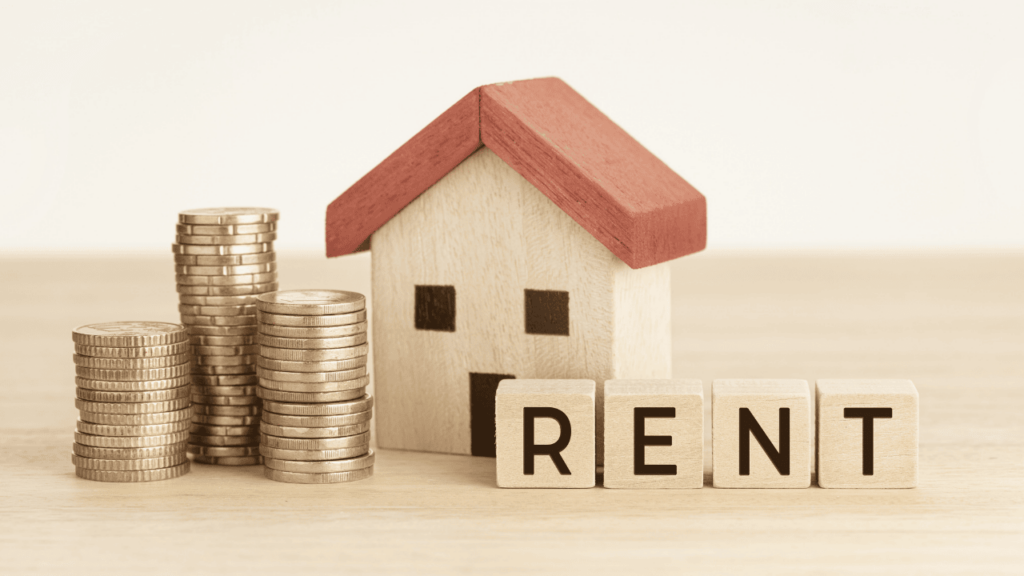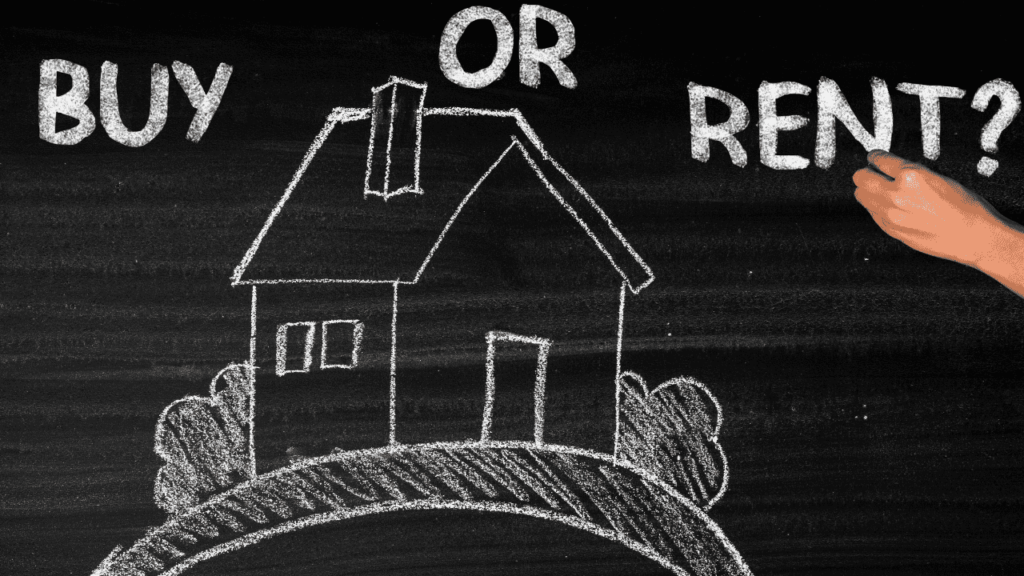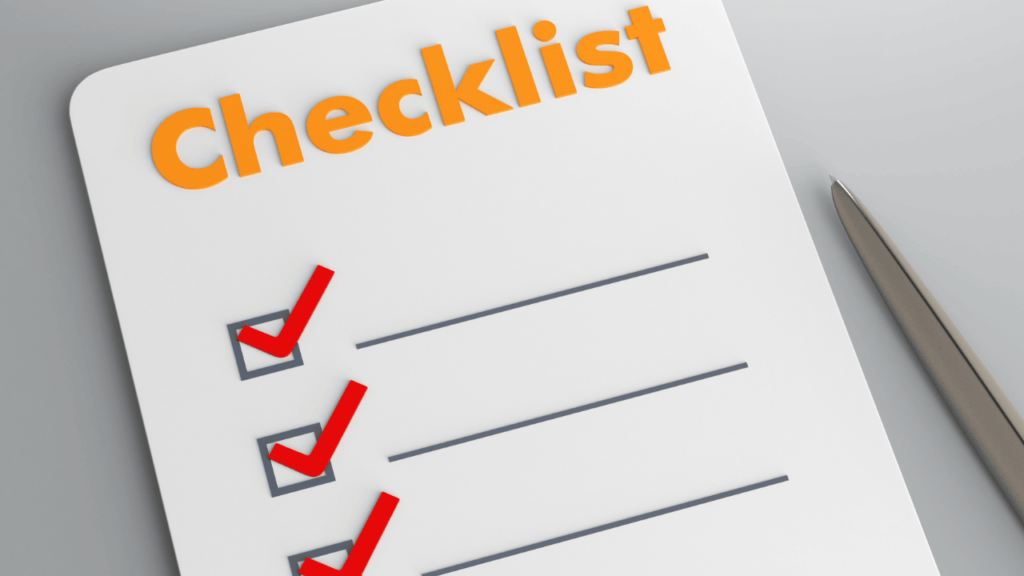
When it comes to home buying in India, the decision goes beyond just choosing between renting and owning. For many, purchasing a home is more than just a place to live—it’s a deeply rooted aspiration symbolizing stability, pride, and long-term security. While some see it as a personal milestone, others consider it a strategic investment. But should you buy a home solely for self-use, or does it make more sense as an investment compared to other options like fixed deposits, gold, bonds, or stocks?
This blogpost takes a deep dive into these questions, exploring both the practical and emotional aspects of home ownership.
Table of Contents
Understanding Your Needs: Personal Use vs. Investment
Before you even begin to search for a house, it is important to figure out what your primary purpose is. Are you looking for a cozy space to call your own, or do you see the property as a potential investment that could generate returns in the future? The decision influences nearly every aspect of your purchase, from the location and size of the property to the kind of mortgage you might secure.
Personal Use: Building a Home, Not Just an Asset
For many Indians, the idea of owning a home goes far beyond a financial investment. It is about creating a space where memories are made, where the family grows, and where personal freedom is nurtured. When you buy a home to live in, you have the flexibility to customize your environment, adding personal touches that make the space uniquely yours. Unlike a mere financial asset, a self-used home often carries emotional value and cultural significance. Movies and stories from our society have long celebrated the idea of a family preserving their ancestral property or finally owning a modest home after years of dreaming.
Investment: A Different Mindset
On the other hand, if your primary goal is to invest, you need to approach the decision differently. Investment properties are considered as one of several asset classes. Financial experts typically advise comparing real estate with other investment avenues such as mutual funds, direct equities, corporate deposits, and bonds. When you invest in property purely for financial gains, you should be prepared to look at factors like capital appreciation, rental yield, liquidity, and even potential tax benefits.
A recent survey found that a majority of investors—57%—favored real estate as their investment of choice. However, it is critical to remember that the same property that feels like a home to some might simply be a portfolio asset to others. As a result, you must decide whether you value the comfort of having a permanent home or the flexibility of investing in an asset that could be more easily liquidated.
The Rent-versus-Buy Dilemma
The decision to rent or buy isn’t just about a simple calculation of costs. It involves a blend of personal circumstances, future plans, and the financial trade-offs that come with each option. Let’s break down the factors to consider:
Factors to Consider When Choosing
- Budget and Property Cost: The first step is to assess your budget against the property’s cost. Ensure that the price of the home aligns well with your financial situation. Spending beyond your means can lead to long-term financial stress, so be realistic about what you can afford.
- Location and Accessibility: The value of a property is not just in its walls but also in its location. Proximity to essential services such as schools, hospitals, markets, and workplaces is crucial. A property in a well-connected area can save you time and money over the long run, regardless of whether you own or rent.
- Quality and Reliability of Construction: A home should be safe, durable, and well-built. Quality construction, reliable water, and a steady power supply are important considerations. Even if a property seems affordable, poor construction can lead to higher maintenance costs or safety issues later.
- Legal and Documentation Checks: Before finalizing any purchase, make sure all legal documents are verified. Pay any token advance only after confirming that the property papers are complete and accurate. This step is crucial whether you are buying for personal use or investment.
Benefits of Renting

Renting a home has its own set of advantages. It offers the flexibility to move easily from one location to another, which is particularly useful if you are in a transitional phase of your life or if your job requires you to relocate frequently. Renting typically involves lower maintenance responsibilities, as the landlord or property manager takes care of most repairs and upkeep. Additionally, you are not burdened by the long-term financial commitments that come with owning a home, such as property taxes, insurance, or regular maintenance costs.
For many people, renting is a temporary solution until they find the right moment or the right city to settle down. It allows you to try different neighbourhoods and even different cities without being tied down by a long-term asset. However, if you plan to stay in one place for a long period, say, ten years or more, buying a home might provide more stability and the potential for building equity over time.
Advantages and Disadvantages of Buying
Buying a home, especially for personal use, offers long-term stability. Ownership means you have the freedom to modify your space according to your tastes and needs. There is also the benefit of potential income tax reductions on home loans, which can be a significant plus if you are eligible for such deductions.
However, home ownership comes with added responsibilities. There are extra expenses like property taxes, insurance premiums, and maintenance costs. For many, the initial downpayment is a major hurdle. Financial readiness is key, having a stable job and ensuring that your monthly loan repayments (EMIs) are manageable are important factors. A common guideline is to keep your total monthly EMIs at or below 35% of your take-home income, though this ratio might vary depending on personal circumstances.
One useful metric when deciding is the rental yield, the annual rent you can charge as a percentage of the property’s purchase price. Rental yields vary by city; for example, yields in Bengaluru might be in the range of 2-4.5%, whereas in Mumbai, particularly in the central areas, they might be closer to 1-2.5%. A general rule is that if the rental yield is less than 2%, renting might be more economical than buying. Conversely, if the yield is above 4%, especially if you are planning to buy in your retirement years, it might justify the investment.
Calculating the Financial Impact: A Detailed Evaluation
For those who prefer concrete calculations to help decide whether to buy or rent, a detailed evaluation can be helpful. The idea is to compare the net gain of buying a home with that of renting one. Let’s explore a simple approach for both scenarios:
Buying Formula
- Net Gain = Future Value of Property – Total Interest on Home Loan + Annual Maintenance Savings
This formula estimates the benefit you get from owning a property. The future value of the home is what you expect it to be worth over time. From this, subtract the net interest paid on the home loan (after accounting for tax benefits on the principal and interest payments). Then, add any savings you might incur from efficient maintenance practices.
Renting Formula
- Net Gain = Future Value of the Downpayment + Savings from Lower Monthly Commitments – Total Rent Paid
When renting, you can consider the money saved from not having to commit to a mortgage. The downpayment you would have used for a home can instead be invested elsewhere, growing in value over time. From that growth, subtract the total rent you pay over the same period.
Points to Keep in Mind
For the above formulas to work well, there are a few important assumptions:
- Tax Benefits: Adjust the loan interest amount based on the tax deductions available under sections of the Income-tax Act. These include benefits on both the principal and interest parts of your loan.
- Inflation Impact: Maintenance costs and rent typically increase every year due to inflation, so factor in an annual increase.
- Growth Rate: A conservative estimate for property value growth might be around 8% per year, though this can vary significantly by region.
- Same Property Basis: The calculations assume you are comparing renting and buying for the same type of property.
- Additional Adjustments: Adjust rent for any housing rent allowance (HRA) benefits you might receive if you are renting.
Some financial experts argue that renting may be the wiser choice if you have to take out a loan to buy a property. They point out that the power of compounding works better when you invest in long-term goals outside of a tied-up asset like a house. When you own a home through a mortgage, you might miss out on other investment opportunities. There is also the risk that if you decide to move out of India or relocate, the value of your property might not keep pace with your needs due to currency depreciation and limited liquidity.
Who Should Buy and Who Should Rent?

There is no one-size-fits-all answer to whether you should buy or rent a home. It largely depends on where you are in your life and what your future plans look like.
When Buying Makes Sense
- Stability: If you plan to stay in one place for at least 10 to 20 years, buying a home could be a wise decision. It gives you the freedom to create a personalized living space.
- Wealth Accumulation: For many, real estate is a way to build wealth gradually. Over time, as you pay down the mortgage, you accumulate equity which can be a significant asset.
- Tax Benefits: Home ownership often comes with attractive tax incentives that can help reduce the overall cost of your loan.
- Long-Term Investment: Even if you view the property as an asset rather than merely a place to live, a carefully chosen home in a promising location can offer reasonable returns if market conditions are favourable.
- Personal Attachment: Many people simply want a place to call their own, a stable environment where they can raise a family and leave behind a legacy.
If you decide to buy a home primarily for personal use, financial advisors sometimes suggest that you should consider putting down at least a 50% downpayment. This larger downpayment helps to reduce the overall loan burden and makes the monthly EMI more affordable.
When Renting is preferable?
- Flexibility: Renting is the best option if you are unsure about your long-term plans or if you expect your job might take you to different cities. It offers the freedom to move without the hassle of selling a property.
- Lower Upfront Costs: Renters do not have to worry about large downpayments or the complexities of obtaining a mortgage. This can be particularly attractive if you are in the early stages of your career or still saving money.
- Avoiding Maintenance Hassles: Homeowners must budget for repairs, renovations, and regular maintenance. Renters typically have these responsibilities taken care of by the landlord.
- Investment Diversification: By choosing to rent, you can invest your money in a variety of other assets—mutual funds, stocks, or bonds—that might offer higher returns over time. This diversification can reduce risk and improve your overall financial portfolio.
- Mobility: If your lifestyle or career requires you to be on the move, renting gives you the flexibility to live in different places without the complications of selling and buying property repeatedly.
Investing in Real Estate: Beyond Personal Use
If your focus is solely on investment, it is important to think beyond the idea of a house that you live in. Financial planners often emphasize that the property you reside in should not be treated as a conventional investment. Instead, they advise comparing real estate with other investment options.
Comparing Real Estate with Other Investment Options
Real estate can be a part of your investment portfolio, but it should be weighed against other asset classes. For instance:
- Fixed Deposits (FDs): Generally offer stable but lower returns, around 7% per annum.
- Equities: Often yield higher returns, sometimes averaging 13% over the long term.
- Bonds and Gold: Typically provide moderate returns, around 8% annually.
Over the past decade, the compound annual growth rate (CAGR) for these different assets shows that while equities might outperform real estate, real estate still provides the advantage of physical ownership and a sense of security. However, the real estate market does not always appreciate at a fast pace. In fact, some data suggests that real estate has grown at an average of around 3% per year—a pace significantly lower than that of equities.
Alternative Ways to Invest in Real Estate
If you are not interested in managing a property directly or do not wish to tie up a significant portion of your money in a physical asset, there are alternative ways to invest in real estate. These include:
- Real Estate Investment Trusts (REITs): REITs allow you to invest in a diversified portfolio of properties without owning them outright. There are generally two types:
- Small and Medium (SM) REITs: These invest in affordable and high-quality commercial properties and may require a lower minimum investment, sometimes as low as ₹10 lakh.
- Traditional REITs: These focus on larger, established office buildings and require a higher minimum investment.
One of the attractive features of REITs is that they must distribute nearly 90% of their earnings as dividends, which can provide a steady income stream.
- Portfolio Management Services (PMS) and Alternative Investment Funds (AIFs):
For those with a higher capital base, these funds offer a way to invest in premium real estate. PMS might require a minimum investment of around ₹50 lakh and do not allow borrowing. AIFs, on the other hand, are generally available only to accredited investors.
The Long-Term Outlook for Real Estate Investment
Real estate is often seen as a long-term, stable investment. However, when evaluated strictly on the basis of capital appreciation, it may lag behind other asset classes. While the rental yield on a property might add to its overall return, this yield often comes close to the returns available from fixed deposits or other conservative investments. This means that, for many investors, the decision to invest in real estate should be balanced with a broader strategy that includes other forms of investments.
Investors focusing on rental yield might find commercial properties more appealing. With infrastructure projects and urban development continually on the rise, the demand for commercial spaces is expected to increase, potentially boosting rental incomes. Yet, regardless of the type of property, ensuring the asset’s quality remains essential for sustainable growth and long-term returns.
Legal and Documentation Essentials
One cannot overstate the importance of proper documentation when buying a property. Whether you are purchasing a home to live in or for investment, having all legal papers in order is crucial. Here is a rundown of the key documents you should check:
- Sale Deed: The most important document that proves the transfer of property ownership. It should clearly state all terms of the sale. Make sure you read and understand every clause before signing.
- Completion/Occupancy Certificate: This is issued by the local municipal authority once the construction is complete. It confirms that the property is safe to inhabit and is essential for further registration and utility connections.
- Building Plan: The approved blueprint of the property, sanctioned by the municipal authority. An approved building plan assures you that the construction is legal and adheres to local regulations.
- Encumbrance Certificate: This certificate ensures that the property is free from any dues or legal liabilities. It is typically obtained from the sub-registrar’s office.
- Mutation Certificate: Also known as the possession letter, this document shows that the property’s title has been officially transferred to you in government records.
- General Power of Attorney (GPA): If the property was bought or sold through an authorized representative, this document confirms that the transaction was properly sanctioned.
- No-Objection Certificate (NOC): Issued by relevant government departments, this document confirms that there are no outstanding claims or issues related to the property.
It is highly advisable to seek legal advice before finalizing any property transaction, as local laws and document requirements can differ significantly from one state to another.
Final Considerations and Checklists

As you weigh your options, it is important to ask yourself several key questions. Are you ready for the long-term financial commitment of owning a home? Do you see yourself living in the same city or neighbourhood for the next 10 to 20 years? How important is flexibility and mobility in your current lifestyle? Answering these questions can help clarify whether renting or buying is the better option for you.
Here is a quick checklist to help you decide:
- Stability: Are you sure you will remain in the current location for at least the next 10-20 years?
- Financial Readiness: Is your income stable enough to handle mortgage payments, or would you benefit more from investing your money elsewhere?
- Lifestyle: Do you prefer the freedom of personalizing your space, or is the flexibility to move a priority for you?
- Maintenance: Are you prepared to handle or pay for the maintenance and repair work required in a property?
- Investment Diversification: Would investing in a property tie up funds that could otherwise earn a better return in other asset classes?
- Tax Benefits: Can you take advantage of the tax incentives offered by home loans, or would these benefits be marginal compared to other investment options?
- Long-Term Goals: Are you more focused on creating a personal sanctuary or on accumulating wealth through asset appreciation and rental income?
Understanding these factors will help you make a more informed decision that aligns with both your short-term needs and long-term financial goals.
Conclusion
In summary, the debate between buying a home for personal use versus treating it purely as an investment is complex and personal. For many Indians, the dream of owning a home is interwoven with cultural values and a deep desire for stability. Yet, when viewed purely as an investment, real estate must compete with other options like equities, bonds, fixed deposits, and gold. The choice between renting and buying depends on multiple factors including your financial situation, lifestyle needs, the local market, and long-term goals.
Ultimately, whether you decide to invest in a property for self-use or treat it as an asset in your portfolio, thorough research and professional advice are essential. Every option has its benefits and drawbacks, and only a careful examination of your financial situation and long-term plans will guide you to the right choice.
You can use this blogpost as a starting point and remember that the best decision is one that aligns with both your heart’s desire for a home and your financial goals for the future.
You can also check my other blogpost on real comparison between Stocks Vs Real Estate Investing.
Do Follow me on Linkedin and Quora for more such insightful posts on investments, personal finance, insurance, money management, etc.





